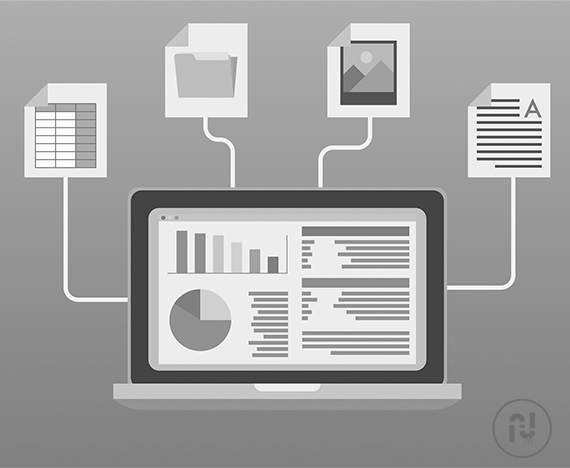Managing projects means making decisions. This process can be supported by data mining and machine learning techniques based on selecting and analysing project data to make better decisions and resolve typical project problems.
Data plays a significant role in any organisation using analytics, managers and executives can watch for easily signs of slippage in budgets, costs, and timelines to make corrective actions. Analytics also help managers capture the rate of work to easily predict whether the project will be completed on time or not.
Data Analytics
Here are the 5 key benefits of data analytics in Project management.
1. Quality of deliverable.
Quality is an ultimate measure of your project’s success upon delivery. Analytics help you plan, monitor, and review the quality throughout your project. As a project manager you must understand to use analytics for reducing workload, improving process and enhance the outcomes of the project. Managing a project can be a scary task there are different stakeholders, approvers, teams, budgets, outcomes, and elevated expectations to work. Analytics has therefore become a significant part of modern-day project management.
2. Assisting strategic decisions.
Analytics helps organizations make decisions that are based on facts instead of using any random data. Real-time project analytics offers information’s that helps an organization align with its strategic objectives. With analytics one can understand how on-going and proposed projects would fit into the overall portfolio and organization vision.

3. Lowers project costs.
With Big Data Analytics one can collect more data to predict future events and trends within an industry. Tasks like resource forecasting and planning process become more efficient as one has a library of relevant data in determining the right agenda, budget, estimates, and more for cost-effective project implementation.
4. Improves resource management.
With Data Analytics you can extract correct information for understanding your project needs. This helps in assessing available resources and match with project needs for efficient resource allocation and, in turn, seamless project operations. You can also predict project outcomes better and make strategic decisions to ensure the most cost-effective resource spending.

5. Enhances project risk management.
Project management is dynamic and affected by many internal and external factors, leaving it open to various risks that could negatively impact your delivery outcome. Identifying and managing your project management risks regularly and actively are needed. Also, all risk events must be documented and followed up with troubleshooting activities.
Data Analytics provides opportunities to sharpen the skills and optimize project management implementation process. Regardless of the objective, one can always find data to influence project results. One can leverage data to analyse past, real-time, and future information to view the probability of the project outcomes and use it to make data-based decisions, improve efficiencies, and prevent risks.
Project management and Data Analytics – inseparable partners
Experts say, about 80% of today’s project management tasks will be eliminated by 2030 as artificial intelligence (AI) will take over the traditional project management functions like planning, data collection, tracking and reporting. The role of the project manager will gradually evolve into one that is more strategic as opposed to the current tactical position.
Irrespective of the magnitude of the project, data associated with it comes into the fore. We need tools to oversee the projects smartly and manage it efficiently. Data analytics surfaces as the most effective solution, making it an inseparable partner of an effective project management. Deep and insightful analytics helps in improving resources utilization and better forecast o revenue and costs.

Data analytics in project management also functions as a booster of business performance it can also utilize to track work velocity, making it easier to predict of a project outcome and further application of analytics will provide strategic value creation for the organisation as well.
There are many data analytics tools available including R programming, Tableau, Power BI, Apache spark, Qlik Sense, RapidMiner, and the most common Ms Excel to name a few.
Data analytics has applied in various fields such as healthcare, finance, retail, and even in sports it is quite common to see analysts to analyse player performance and improve team strategies.
Learning from the past helps make our future better.
Project managers always connect the dots looking backwards and forecast the projected path to the end using earned value management. This will bring a perspective on whether the current projected path and pace will take us to the desired destination.
The market for Data Analytics and Business intelligence is predicted to grow humongous. According to the Project Management Institute, there will be a demand for 87.7 million project managers by 2027. With both these disciplines growing at an explosive rate, it only makes sense to use powerful tools interwoven into the organisation’s fabric to create a more sustainable competitive advantage.
References: www.itpro.co.uk; www.eit.edu.au; www.enterpriseitworld.com
Thanks for reading! If you enjoyed this post, be sure to check out my blog https://ujaike.com/blog/ for more articles like this one. You can also connect with me on social media for more content and updates.
Many thanks for your support!

